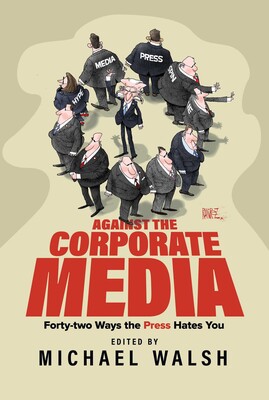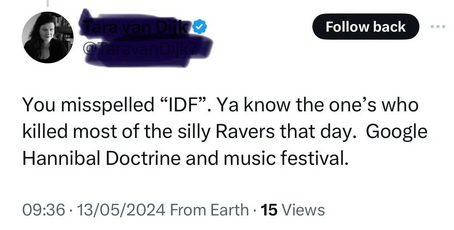Elizabeth Nickson links to a short excerpt from Michael Walsh’s introduction to his upcoming Against the Corporate Media:
Today’s journalists now openly celebrate the death of objectivity, arguing that reporters have biases like everybody else, so why pretend that they don’t? In clear violation of their own — and now very much outmoded — Society of Professional Journalists’ Code of Ethics, they happily ignore such tenets as:
- Identify sources clearly.
- Consider sources’ motives before promising anonymity.
- Avoid conflicts of interest, real or perceived.
- Expose unethical conduct in journalism, including within their organizations.
Thus, after nearly a century’s consensus about journalistic best practices, we have come full circle to the days of naked partisanship that marked the earliest American newspapers. Gossip has become news, journalistic crusades are fabricated out of whole cloth and attributed to anonymous sources as justification. It’s noteworthy that the word “objectivity” nowhere appears in the current SPJ code, which was revised in 2014. Why would it? Objectivity has become the mortal enemy of the current vogue for “explanatory” or “advocacy” journalism — otherwise generally known as propaganda.
The transformation of journalism from rank advocacy to lukewarm “objectivity” and back to even ranker political propaganda (nearly all news stories today are couched in political terms, including those about pop music and sports) is one of the principal subjects of this book. Accordingly we have assembled a corps of forty-two journalists — some grizzled veterans, some newcomers, some of whose primary occupations lie in the wider fields of book publishing, fiction, non-fiction, television, and even Hollywood — to analyze the startling changes that have come over the profession in our lifetimes.
You really can’t hate them enough.
Even greater than the abandonment of “objectivity” as a pernicious influence on journalism is the internet, the great destroyer of printed periodicals, which has laid waste to the newspaper and magazine industry and has fallen under the control of the social-media giants, such as X (formerly Twitter) and Facebook, and is now subject to favoritism and even censorship by near-monopolies like Google, a search engine that also now controls visual media via its ownership of YouTube. Whether the patrician Walter Lippmann would have admired his wishful handiwork now that it is a reality is open to question, but surely he would celebrate the intrusion of the American federal government, along with governments around the world, into both de facto and de jure informational control of cyberspace. In many countries around the world, the press and attendant broadcast media are now directly and unabashedly controlled by government entities which, in many cases, openly fund and censor them.
Even in a work of this length, it is of course impossible to touch upon every aspect of the current state of the media. From the point of view of one who has labored in it, off and on, for more than half a century, it is parlous and getting worse. Ask someone with less than ten years’ experience in the field and you may well — very likely will — get a different answer: that it’s liberated, responsive, unfettered. Still, my work as a historian has convinced me of the truth of Jean-Baptiste Alphonse Karr’s famous axiom, plus ça change, plus c’est la même chose. (The Paris-born Karr, who lived from 1808 to 1890, was, of course, a journalist himself, in addition to being a critic, novelist, and flora-culturalist. But that was back in the day when “journalists” were men of accomplishment in other fields.) That is to say, the fundamental things apply in all walks of human endeavor, and among these things is mankind’s innate desire to convince others of the rightness of his position on any given subject. The question always has been: What’s the best way to go about it?

















